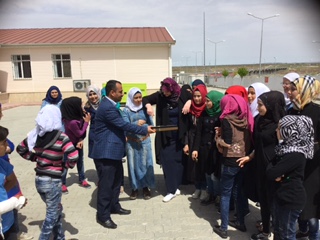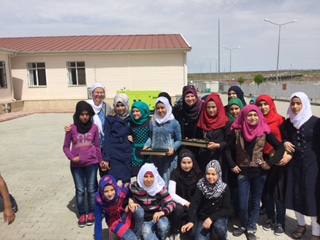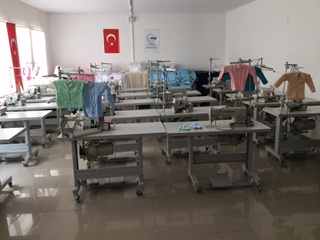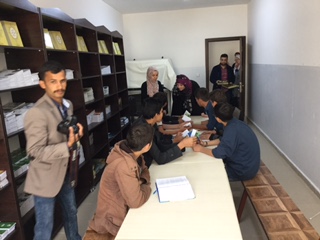BIRMINGHAM – Nizip was not the first time I had been rendered speechless by conditions in a refugee camp. In 2005, I experienced the atrocious conditions endured by internally displaced Palestinians living in slum cities, from Ramallah to Gaza. Two years later, I had the misfortune of visiting Sabra and Shatilla. These the twin hell holes today house 22,000 human beings.
The ‘process’ human beings seeking safety and solace must endure to reach and then to stay in either European nations or the UK, undoubtedly increases the suffering. Once those fleeing war and hunger make it here, their future and safety is far from guaranteed. Three weeks ago, Reker Ahmed, a 17-year-old Kurdish Iranian, was at a bus stop in south London, when a passersby asked where he was from.
“They established he was an asylum seeker,” say the police. Ahmed was then kicked and punched, by a mob. His face smashed, an eye socket cracked and his spine was fractured. There were bystanders who did nothing but watch the entertainment.
Such attacks do not happen in a vacuum. They are made possible by Prime ministerial rhetoric and headlines full of hatred.
As home secretary, now British Prime Minster Theresa May referred to asylum seekers as “foreign criminals”. Her stated policy’s objective since becoming Prime Minister has been to create a “hostile environment” for migrants who arrive in the most desperate condition.
Last week, I visited the Nizip facility on the banks of the Birecik dam in Gazientep province. It was there that six years ago, men, women and children began to arrive in nightclothes, clutching their life in bundles, sprinting from nearby Syrian cities including Aleppo, just 30 miles across the border.
Modern Ansar
Entering the facility, the Turkish official from the Disasters and Emergency Committee (AFAD), showing me around, said, “This NOT a refugee camp. Don’t call it that and kindly do not refer to the brothers and sisters residing here as refugees”.
This is the official Ankara line on the status of the ever growing number of displaced people now the economic responsibility of the Turkish government and people. Turkey is now sheltering more than 2.7 million registered Syrians. It is estimated that another 500,000 are attempting to make lives for themselves, beneath the government radar, in cities nationwide.
Unlike European nations, Turkey’s leaders have lifted restrictions for new arrivals from war torn nations to enter university and to apply for jobs. Youngsters are given the option to learn Turkish as soon as they are registered for education.
Within walking distance from the two bed container homes, I was shown through a series of smart classrooms busy with students aged from 16 years old to 60. They were having vocational lessons: hairdressing, weaving, Jewellery making, fine arts, computing and mosaic. The art work on display was as good as any at my daughter’s private school in the UK and the equipment was excellent.
Last summer in Ramadan, President Erdogan and his wife broke their fast at another ‘Accommodation Centre’ at Midyat. His speech there explained the exceptional level of care taken by the Turkish authorities of the Syrians – and refugees from other nations including Iraq now making up 3.4 per cent of the nation’s population.
Erdogan said: “I pray this may be the last Ramadan you observe away from home. You are Muhajirun for us. We, as Ansar, try to take care of our Muhajir brothers with the love, enthusiasm excitement of Madinah. In our culture, a guest means prosperity, honor and joy. You have brought prosperity to us. You have honored us with your presence.”
Islamic Tradition
Such a statement makes perfect sense to Muslims who are motivated to help refugees in an exceptional manner, because of an Islamic tradition from the time of Prophet Muhammed (pbuh).
The monotheism and fairness principles of Islam were at odds with the pagan values followed by the Meccan people of the time. As a result, the oppression of the early Muslims was intense. Conditions became so severe the Prophet and his followers sought refuge in the multi-cultural city of Yathrib.
It was there, in the renamed Madinah, that the Muslim minority were welcomed by hosts known as Ansar or (The Helpers). The refugees from Makkah, were called ‘Muhajirun’ (The Emigrants). The Helpers shared their belongings, made the emigrants business partners, shared their houses, food, clothing and water for as long as was needed.
Turkey’s government has so far diverted 25bn dollars of its economy to the effort to spare fellow human beings further pain and humiliation.
Watching Syrian students playing basketball in an (enclosed) village atmosphere on the banks of a dam (which they swim in under special supervision) it’s impossible not to make the comparison between the Turkish approach and the European reaction to the current global displacement impacting 65m people.
In October 2016, Denmark passed a law requiring newly arrived asylum seekers to hand over valuables, including jewellery and gold. Why? To help pay for their stay in the country.
What next gold teeth removed? We must shudder at this reminder of an earlier fascism which reared its head in Europe.
Erdogan told Syrian refugees in Kilis, a city hosting more than 120,000 refugees, exceeding its Turkish population. “We regard you as our brothers and sisters. You are not far from your homeland, but only from your homes and your land … Turkey is also your homeland.”
I was stunned by Nizip Accommodation Centre. For the first I was struck by a sense of hope rather than despair in a camp of guests, not refugees.